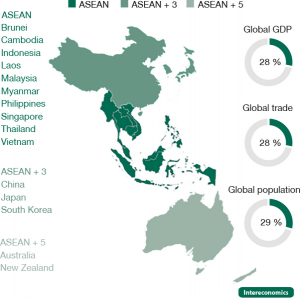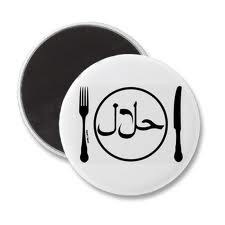 As part of our fortnightly brain storming session at Zilzar, we recently had a session to better understand the Muslim lifestyle marketplace: it’s a broad term requiring narrowing clarity. The question that was tabled was: “How do we describe the attributes of the target participants of Muslim lifestyle marketplace?”
As part of our fortnightly brain storming session at Zilzar, we recently had a session to better understand the Muslim lifestyle marketplace: it’s a broad term requiring narrowing clarity. The question that was tabled was: “How do we describe the attributes of the target participants of Muslim lifestyle marketplace?”
The one response that seemed to connect with the working group was “e-Muslim!” But, what does e-Muslim mean? An “electronic” Muslim implies tech-savviness with a focus on (responsible) consumerism outside the mosque, but its foundation within values of the mosque, i.e. Islam.
We all took a step back and tried to “back-fill” e-Muslim as way to describe the term. Are the Muslims, as a whole, market-worthy of the tag line, the “next BRIC” (Brazil, Russia, India, China and South Africa) opportunity?
Furthermore, it was not about “data-dump” demography, which, depending upon who is talking, has range-based answers with large variances. For example, as of June 2014, is Islamic finance US$1 trillion (RM3.5 trillion)? US$1.3 trillion? US$1.6 trillion?
Thus, the emphasis was on attributes of the bulge-bracket in Muslim countries: the youth, with the raw numbers of about 500 Million.
For example, Fadi Ghandour, Founder, Aramex, recently stated in an article:
“…With a collective GDP of $2.85 trillion, the Arab world ranks among the top ten largest economies; larger than that of India, Russia or Brazil. More than half of the 369 million strong population are under the age of 25, and the burgeoning middle-class is young, educated and globally connected. Tellingly, over the past few years the levels of connectivity have been increasing drastically. Between 2007 and 2012, internet penetration jumped 294%, while mobile data traffic grew 107% in 2013, compared to 86% in Asia Pacific, 77% in North America and 57% in Western Europe. Moreover, the recent roll-out of low-cost affordable smartphones in emerging economies is sure to accelerate broadband penetration. Soon, social and mobile technologies will be within everyone’s reach.”
Obviously, it’s only the beginning; but we need to “E-say something as we E-see something positive”, to global corporations looking for the next BRIC story. Why not the e-Muslim?
Finally, as the exercise was about the e-Muslim, we wanted to constrain ourselves with “E” keywords describing them.
E-Muslim attributes
The wants, desires, and demands of e-Muslim are same as their non-Muslim counter-parts. The only difference is that the rules of engagement for the products, services, and companies must be aligned to their faith.
The e-Muslim is:
Engaged: They are engaged or “LinkedIn” via the social media, to political, social, economic, financial, religious, etc., issues locally, nationally, regionally and globally on Muslim matters. The social media is not only always ‘on,’ but also a truth commission that cannot be blocked easily, and the blocker will generally be ‘hacked’ to spread the story.
Enlightened: The target market is well-educated and naturally curious and will dis-intermediate the “middle-man” to find answers by going to the original sources. Some Muslims brought us into the Dark Ages, the e-Muslim, however, leads us out towards the “knowledge of light”.
Enfranchised: The social media has given a voice to the voiceless, and the “Arab Spring”, “Occupy Wall Street” or even “Students Protests in Hong Kong” have changed governments, exposed “casino capitalism”, and raised issues that were generally blocked. To have a voice implies responsibility of a lobbyist to the disenfranchised, i.e. responsibility that comes with accountability.
Enterprising: They want to bring about innovation and invention as tired of imitation, but all within their business boundaries of their faith. They may not have access to risk capital, but will have access to technology, which will be an eventual equaliser. The access to risk capital may well be by “crowdfunding”, or people’s capitalism.
Ethics: This will be not the “Y” generation, but the “E” (for ethics) generation. It will be a generation of substance over form, as they will not look like “Muslims”, but they carry the banner of Islam proud; not necessarily loud, as their actions will speak louder than words!
Equality: This generation is about dignity and humanity and not cultural influenced tribalism biases, hence, less emphasis on where you come from and more on what have you done. They will rebuild bridges that were destroyed by mistrust, misunderstandings, mis-deeds, and mis-fortune. Conversely, they will have their informed non-Muslim counter-parts defend them when and where required.
Equity: Equality without equity is an in-equilibrium, hence, injustice will follow (or status quo in many places). By equity, it means being a stakeholder in your future, where the majority are duty bound to protect the rights of minority.
Execution: The execution for excellence will be their mantra, as they have seen in real time execution of another kind.
Earthly: They consider themselves as stewards of the earth, hence, environmental, social, and governance (ESG) issues are more important compared to their predecessors. For example, they will push the “organic” agenda in their countries, which are aligned to the humane agenda.
Emigrate: The “E” generation are proud of their roots, and want to stay to build and develop in their “equal opportunity” country. It should be noted, there are three main stakeholders that form the gravitas of a country: SMEs, entrepreneurs, and the youth, and they will lead the country to a high-income and knowledge based economy if the government fulfils its socio-economic contract.
Empower: The “E” Muslim is engaged and does not desire to emigrate, as they want enfranchised entrepreneurship and are ready, willing able to execute with equity equality to empower themselves and their neighbours to be the “third one billion” marketplace with common (not necessarily unified) aligned values.
Obviously, this is only a beginning to understand the e-Muslim, and the road ahead will be filled with education, awareness, business and trade opportunities.
* This is the personal opinion of the writer or publication and does not necessarily represent the views of The Malaysian Insider.



